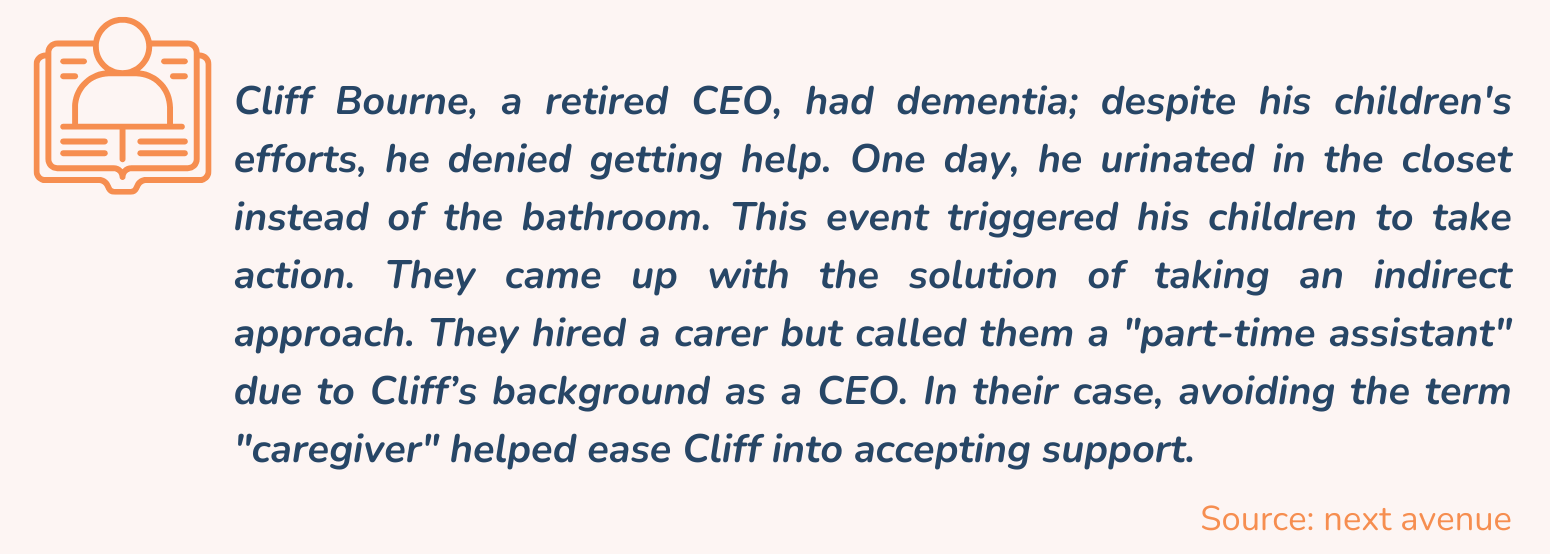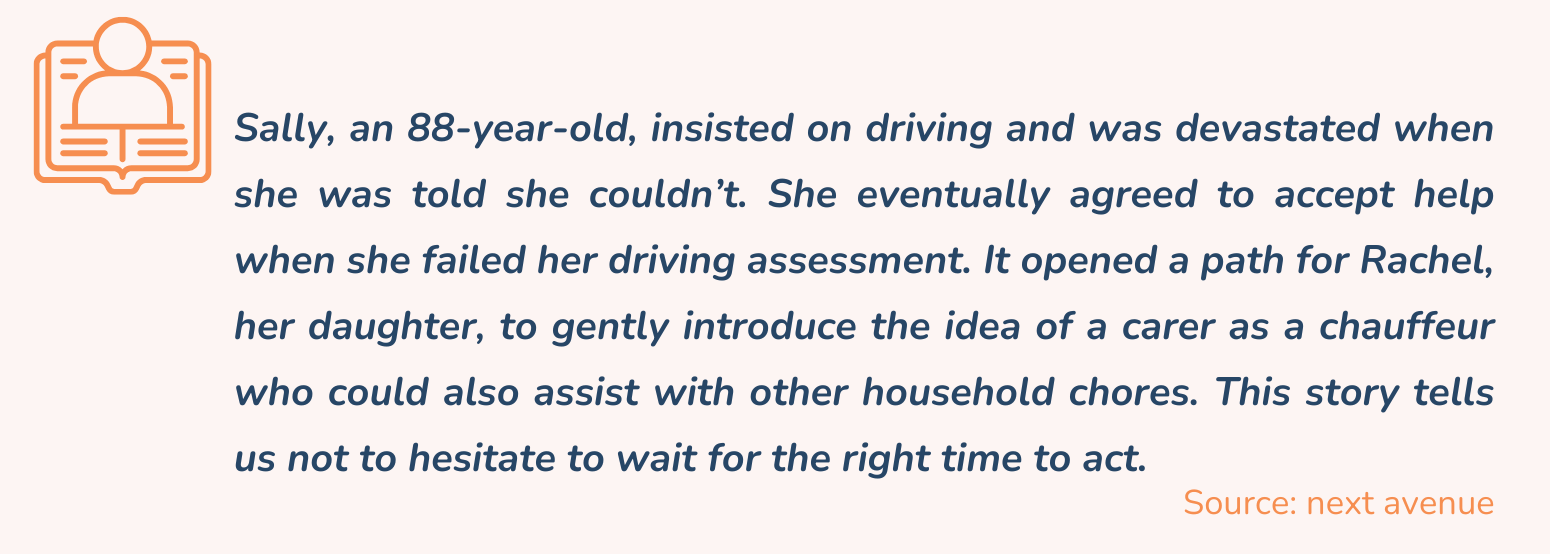Telling your parents they need care can be tricky. You might get an agitated response, such as frustration or total denial. It may seem that they don’t like the idea of getting care, but you have to understand the problem from the root. I am here today to guide you on what to do when your parents refuse care.
Why Do the Elderly Refuse Help?
We are addressing the topic of parents’ resistance to help. Before we look for ways to deal with that, let’s focus on the common reasons behind this behavior. When you comprehend their behavior, understanding their concerns and emotions becomes easy.
Elderly parents resist because they have:
- Fear of the unknown (being unaware of senior care options and other health-related facilities and programs)
- Fear of being a burden (financially or physically)
- Their autonomy is at stake.
- Fear of being away from loved ones (depends on the care option)
What to Do When Your Parents Refuse Help?
How you approach this matter will shape the dynamics of the whole conversation.
Here is how you can do it with dignity and grace:
1. Evaluate Your Parents’ Needs:
To get the best out of this conversation, first, assess in what aspects they need help. Is it ADLs, companionship, or specialized care? You don’t need to make big changes overnight (which could be the reason for the refusal in the first place). Remember, it’s not just about your concern for them but, more importantly, your relationship with them. So, you have to take one thing at a time.
2. Start Simple:
When you’re having this conversation for the first time, it’s best to keep things simple and give them different options. This way, they’ll have a diverse range of choices and can find something that fits their needs and comfort level. The goal is to lighten their burden, not add to it.
Even if your concern feels legitimate, try not to overwhelm them with too much information at once. By starting simple, I mean starting with basic options. For instance, hire an hourly carer for some support throughout the day. By taking this approach, you can help them understand what you want for them.
3. Ask the Right Questions:
Parents don’t like to be dictated; remember your time as a kid; you didn’t like to be told what to do. Instead of ordering them, ask open-ended questions that will give deep insights about their current situation, what they are feeling, their preferences, and their likes and dislikes. How effective this approach can be will depend on your questions.
Try asking these questions:
- Do you feel the need for companionship throughout the day?
- What could be better in your life?
- At this point, what do you value the most?
- What do you think you need that can improve the quality of life?
4. Have Patience:
You can’t reach to conclusion in these matters at once. So be patient; after you have expressed what you want, give them enough time to think. Put yourself in their shoes and consider how you would feel if someone told you your life was going to be turned upside down. You would need some time to let that sink in. Consider the same for them.
I advise you to talk to them on a day when no external factor could disturb your conversation. This means when neither you nor your parents are stressed and they are in a good mood to listen to what you have to say.
5. Do Not Infantilize Them:
I will not deny that there are similarities between older people and children. Yet there is a difference, as written by Dr. Robert Kane in The Good Carer:
Avoid infantilizing your parent
followed by,
Dealing with a stubborn parent is not the same as dealing with a stubborn child. Older people should be autonomous.
The most important part of this conversation is how you approach it. If you act like you are in charge and assume they don’t know what’s good for them, things can get heated. To keep everything calm and smooth, don’t just assume they don’t know how to make a decision. For you, it might not hold much value, but decision-making is a major factor in preserving seniors’ dignity.
6. Involve People Your Parents Trust:
Sometimes, parents value their friends, cousins, or other relatives more than their children. If that’s the case for your parents as well, involve people with whom they are close in this discussion. They will listen to their suggestions and value their opinions for the sake of the bond they share.
7. Express Your Concerns:
Initiate the conversation by expressing your concern. The idea behind this is that no parent wants to see their child worried and always concerned about their health. They may be stubborn at first, but when you express your concern, they might agree to do it for “you”
You’re Not Alone: Stories from Around the World
This section of the article deals with how you are not alone and how your parents are not the first to behave like this.


Our Support for You:
If you need help understanding or addressing your loved one’s needs. Dont worry. We offer professional caregivers who can assist with personalized care, making sure that every detail of your loved one’s routine is handled with compassion and expertise. Reach out for a free assessment today!
What to Keep in Mind?
If you have tried everything we discussed above and they are still refusing, what do you do next? In this situation, you must respect their decision. For your peace of mind and satisfaction, continue offering your support so they realize that you will always love them and will always be there for them.
FAQ’s
Q. How do you deal with the selfish elderly?
Maintain your distance with them for a week or so, and when they ask, the behavior changes. Express what’s bothering you openly. Open communication helps clear out the air.
Q. What things I should avoid saying to my aging parents?
Statements like;
- This is so easy; why are you struggling with this?
- You forgot again; we have been through this.
- It is not relevant, or what does this have to do with anything?
They may bring something that is not relevant to the current situation. Instead of getting irritated, try asking the reason why they think it’s relevant. Avoid saying that may trigger their confusion, especially if they have dementia.
Q. What are the signs that your elderly parents need help?
There are many signs indicating your loved one needs help, such as poor hygiene, less interest in activities, mood swings, decreased mobility, confusion, and unexplained bruising.
Q. How do I handle family disagreements about my parent’s care?
Family conflicts can complicate care decisions. It’s helpful to hold regular family meetings to discuss your parent’s needs and preferences. If disagreements persist, consider involving a mediator or geriatric care manager to guide these conversations objectively.
Q. How do I keep my parent’s dignity while talking about care?
Respect their independence by focusing on support, not limitations. Instead of saying, “You can’t do this alone,” try, “With a little help, you can keep doing what you love.” Involve them in decisions to show you value their opinions. This approach keeps the conversation positive and respectful.






